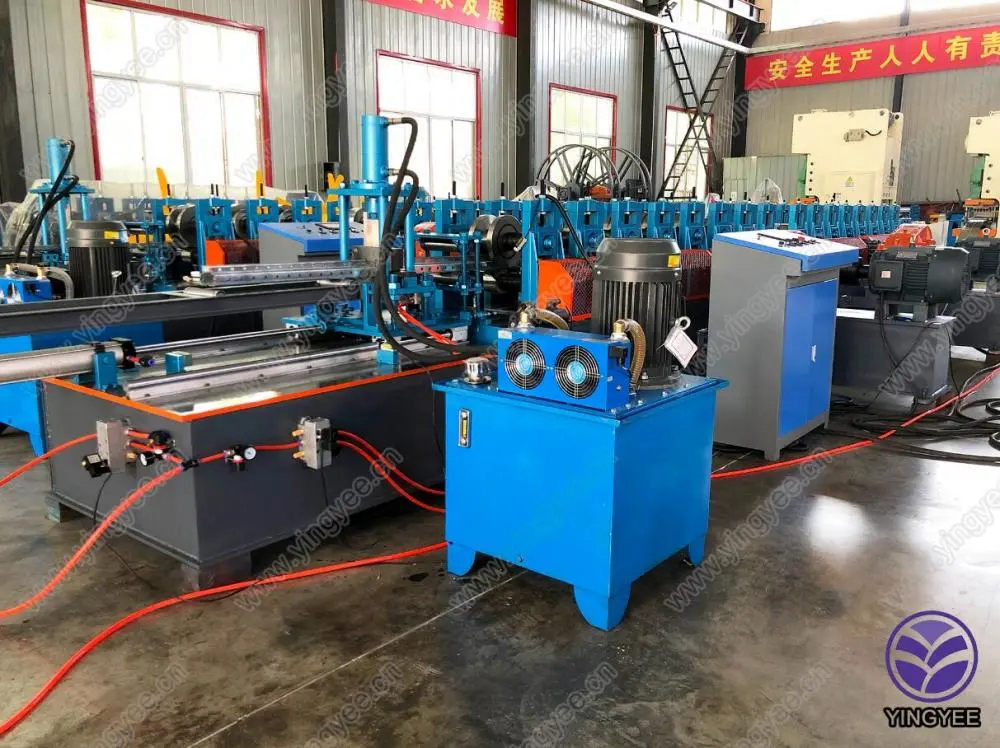
The Wall Panel Roll Forming Machine Revolutionizing Construction
In the realm of modern construction, efficiency, durability, and aesthetic appeal are paramount. One of the notable innovations contributing to these goals is the wall panel roll forming machine. This sophisticated piece of equipment is designed to fabricate wall panels that not only meet structural demands but also offer versatility in design and application.
The Functionality of Wall Panel Roll Forming Machines
At its core, a wall panel roll forming machine converts flat metal sheets into panels of various shapes and sizes through a series of precisely calibrated rollers. The process begins with feeding a coil of metal, often steel or aluminum, into the machine. As the metal passes through the rollers, it is gradually shaped into the desired profile. This continuous process allows for high production speeds and consistent quality, making it a preferred choice for manufacturers aiming to meet high demands in construction projects.
Additionally, wall panels produced by this machine can feature a variety of designs, from simple flat finishes to intricate patterns that enhance a building's aesthetic. The customization options are vast, enabling architects and builders to experiment with different styles and appearances while maintaining structural integrity.
Benefits of Using Roll Formed Wall Panels
The adoption of wall panel roll forming machines brings several advantages to the construction industry. First and foremost is the enhanced efficiency in production. Traditional methods of wall panel manufacturing often involve labor-intensive processes that can be time-consuming and costly. With a roll forming machine, manufacturers can streamline production, reduce waste, and significantly lower labor costs.

Durability is another considerable benefit. Roll-formed wall panels are made from high-quality materials, often treated to resist corrosion and wear. This durability ensures a longer lifespan for the panels, reducing the need for repairs and replacements over time. Consequently, this contributes to lower overall maintenance costs for buildings that utilize these panels.
Moreover, energy efficiency is increasingly becoming a priority in modern construction. Many wall panel systems are designed to provide excellent insulation, which helps to maintain indoor temperatures and reduce energy consumption. This not only contributes to the sustainability of a building but also results in significant savings on energy bills for occupants.
Applications in the Construction Industry
Wall panel roll forming machines find applications in various sectors of the construction industry. They are commonly used in commercial buildings, warehouses, and industrial facilities where large wall surfaces are required. Moreover, they are increasingly popular in residential construction, particularly in homes that embrace modern design aesthetics. The lightweight nature of roll-formed panels allows for easier installation, further enhancing their appeal among builders and contractors.
Additionally, as sustainability becomes a driving force within the construction industry, the use of recycled materials in the production of wall panels is gaining traction. Many roll forming machines can accommodate eco-friendly materials, allowing manufacturers to produce green building solutions that meet increasing environmental standards.
Conclusion
The wall panel roll forming machine is a vital asset in contemporary construction, providing a perfect blend of efficiency, durability, and aesthetic flexibility. As the industry continues to evolve, the role of this technology is likely to expand further, paving the way for innovative building solutions that not only meet structural needs but also contribute to sustainable development. Embracing such advancements will not only enhance project timelines but also play a significant role in shaping the future of construction.